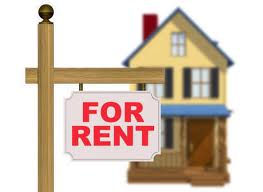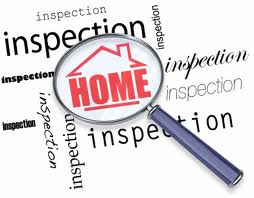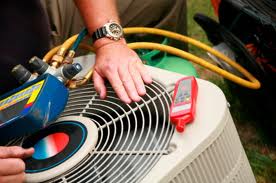Understanding How Credit Cards Affect Your Credit Score
July 25th, 2012
July 25th, 2012
July 11th, 2012
When you buy a home, or use your home or other real estate as collateral for a loan, your lender will require an appraisal. An appraisal helps to determine the property’s market value or how much it’s worth – and how much money the lender will give you to buy or borrow against the property. The appraisal protects the lender since it wants to make sure the property is worth the amount it’s investing in your loan.
When you apply for a mortgage or a loan, the lender will contact an appraiser, a certified, state-licensed professional who’s trained to determine the value of real estate property. The lender may use its own appraiser or contract with independent appraiser. It’s best if the appraiser is an objective third party and not connected with anyone involved in the transaction.
Even though the lender requires an appraisal, it’s still your responsibility to pay for it. An appraisal can run about $300 or more depending on the price of the property.
There are two primary methods for appraising residential property.
The appraiser prepares a report that includes information such as the details about the subject home and the comps; the overall real estate market in the area; health and safety items affecting the home’s value; and the area in which the home is located.
Once the lender receives the report, it will study the appraisal carefully before making a determination regarding your loan. The loan may be declined if the property appraises at an amount lower than the sales price. However, most lenders have a process for disputing an appraisal.
Note: An appraisal is not the same thing as a home inspection. While appraisers do look at health or safety issues concerning the home, such as cracked foundations or exposed wiring, home inspectors actually test the home’s mechanical systems and make recommendations about needed repairs. Also, an appraisal is not the same thing as an assessment. Assessments are done by a city or county to determine property taxes.
Do you still have questions about home appraisals? Contact Grandview Lending. We’re a trusted mortgage broker who can help you determine the best mortgage or loan solutions for your needs. Call us today.
READ MOREJuly 4th, 2012
 Are you renting out property this summer? Property rentals can be a great way to generate income. But they can also involve a lot of work in finding tenants and managing the property. And sometimes the experience can become a nightmare when problems arise that end up costing you money. To ensure a more positive property rental experience, here are seven mistakes you should avoid when renting out your property.
Are you renting out property this summer? Property rentals can be a great way to generate income. But they can also involve a lot of work in finding tenants and managing the property. And sometimes the experience can become a nightmare when problems arise that end up costing you money. To ensure a more positive property rental experience, here are seven mistakes you should avoid when renting out your property.
1. Oral lease agreement or generic lease agreement
While your state may allow you to have an oral lease agreement, it’s better to have a written agreement to protect both you and your tenant. Generic lease agreement forms may be easier to use, but often they don’t cover everything they need to. Have a contract written up that covers items specific to your property, including late payment fees, pet policies, property maintenance, lease termination notice, and anything else you’re concerned about. A detailed contract will help you avoid future conflicts and possible lawsuits.
2. Illegal provisions in your contract
Your lease agreement should not include any conditions that violate state and/or federal laws. For example, you can’t require your renters to waive their right to sue you or to receive a security deposit refund.
3. Inadequate screening of potential tenants
It’s in your best interest to properly screen your potential tenants. Before approving the rental agreement, get the tenant’s written permission to obtain reports on his/her credit history, criminal record, and employment history, as well as references from previous landlords.
4. Discrimination of prospective tenants
Make sure you understand the fair housing laws. You cannot discriminate against tenants based on race, national origin, sexual orientation, religion, disability, marriage or family status. Make sure your rental listings and interviews with potential tenants don’t appear to discriminate against specific groups of people. You can only refuse property rental based on the potential tenant’s poor credit, inability to verify employment or lack of good references as the reason. Keep proper documentation to support your decision.
5. Insufficient Insurance Coverage
Don’t assume your rental property is covered under your homeowners insurance. You should buy landlord insurance coverage to adequately protect your property in the event of damages, accidents or other financial losses. Additionally, you can require your tenant to buy renters insurance to protect their personal belongings from theft or damage.
6. Inadequate home inspection documentation
Prior to your new tenant moving in, have them sign an inspection sheet which outlines the condition of the home. Also, take photos or video of the home to provide clear evidence of the home’s condition. This will protect you in the event of future damage which the tenant claims they didn’t make.
7. Property disclosure failure
Make sure you understand and comply with your state’s laws regarding home disclosures. You must notify your tenants of things like mold, lead, asbestos, or deaths on the property.
If you looking to buy a rental property, contact a reputable mortgage broker to help you sort through the mortgage loan process to find the right home loan solution geared to your needs.
READ MOREJune 27th, 2012
 According to “The Niche Report,” recently, mortgage rates for a 30-year fixed-rate mortgage reached 3.66%. This was after several weeks of record-setting lows. When you consider this with the rising costs of renting, financial experts are recommending that the time is right for renters to think about buying a home. Especially since if the economy does start to improve as projected, mortgages rates will likely go up.
According to “The Niche Report,” recently, mortgage rates for a 30-year fixed-rate mortgage reached 3.66%. This was after several weeks of record-setting lows. When you consider this with the rising costs of renting, financial experts are recommending that the time is right for renters to think about buying a home. Especially since if the economy does start to improve as projected, mortgages rates will likely go up.
To rent or to own a home is a both an emotional and economic decision for people. Plus, it depends upon your particular circumstances. To help you make your decision, let’s examine each option:
Pros of Renting
Cons of Renting
Pros of Buying
Cons of Buying
Hopefully these pros and cons will help you make your decision on whether you should rent or buy. If you decide now is the right time for home ownership, contact Grandview Lending. We can take a look at your individual circumstances and find a home mortgage solution tailored to meet your needs.
READ MOREJune 20th, 2012
 Buying a house can be a big investment. Therefore, you want to make sure the home you’re buying doesn’t have serious safety problems or defects. So, it’s important to take the time to choose a qualified home inspector, because, unfortunately, there are incompetent inspectors out there.
Buying a house can be a big investment. Therefore, you want to make sure the home you’re buying doesn’t have serious safety problems or defects. So, it’s important to take the time to choose a qualified home inspector, because, unfortunately, there are incompetent inspectors out there.
Here are some tips to help you screen potential home inspectors to make sure the one you choose is qualified for the job.
By hiring an experienced, qualified inspector, you can uncover potential problems that you may be able to get the current homeowners to fix before you move in – saving you time and money.
If you’re looking for a new home, contact Grandview Lending to help you work through the complex mortgage lending process. Our experienced brokers have extensive knowledge of the many loan programs available and will help you find one that fits your needs.
READ MOREJune 13th, 2012
June is National Safety Month. While you may think of your home as your safe haven, this may not always be the case. Your home can be the site of potential dangers just waiting to happen. Therefore, it’s important recognize these hazards and make changes to ensure your home is a safe place for everyone.
Here are 12 ways to prevent accidents and injuries in your home:
By following these 12 tips, you can protect yourself, your family and your house guests and help prevent many accidents from occurring.
At Grandview Lending, we care about our customers. When you’re ready to purchase a new home or refinance an existing one, contact us. We can assess your goals and offer customized options that fit your needs.
READ MOREJune 6th, 2012
 If you live in warm weather climate, central air conditioning can keep a home cool and comfortable on those hot summer days. Therefore, if you’re looking for a new home, central air may be high on your wish list. But it can also be a major concern when considering energy and potential maintenance costs. If you had to replace the air conditioning unit a few years after moving in, it could set you back $3,000 or more, depending upon the size of the home.
If you live in warm weather climate, central air conditioning can keep a home cool and comfortable on those hot summer days. Therefore, if you’re looking for a new home, central air may be high on your wish list. But it can also be a major concern when considering energy and potential maintenance costs. If you had to replace the air conditioning unit a few years after moving in, it could set you back $3,000 or more, depending upon the size of the home.
So how can you be sure a home’s AC system is in good working condition before you buy a new home? While you may not have the tools or training to do a thorough inspection, there are some things you can check for which may clue you in to potential problems.
How old is the air conditioning unit?
Find out how old the air conditioning unit is. The age can help you determine the condition of the unit, its energy efficiency or SEER rating, and if it’s still under warranty. (The SEER or Seasonal Energy Efficiency Ratio measures air conditioning and heat pump cooling efficiency.) AC units built before January 2006 had a minimum allowable SEER rating of 10. Units built after that date must have a rating of 13 or more. The higher the SEER rating, the more energy efficient the unit will be. If the owner doesn’t know the age of the unit, get the serial number from the identification plate on the unit and call the manufacturer.
Are all the rooms being cooled adequately?
As you walk around the house, check to see if certain rooms are hotter or colder than others. All of the rooms should have a consistent temperature. If not, then this may indicate a problem with the AC unit, leaking ducts or inadequate insulation.
Is there moisture around the ducts or indoor unit?
Condensation around the ducts or a leaking indoor unit can cause mold to form which affects the indoor air quality of the home. Mold can also lead to illnesses.
Is the air conditioner noisy?
While an outdoor compressor can make a lot of noise, too much noise may indicate a potential problem. Most new units are quieter. So if you hear any clanging or screeching sounds, a part may be coming loose.
Does the home have an odd odor?
If the AC unit appears to be blowing strange- or stale-smelling air, the air filter may need to be replaced or the unit may have a refrigerant leak.
If you’re concerned the home may have a potential AC problem, have a professional air conditioning contractor check out the unit. They can determine the age of the system, its capacity, its condition and expected life, and whether any repairs are needed. The inspection cost is well worth the potential future expense of unit repairs or replacement.
If a problem is detected, talk to your real estate agent about what to do next. You can either ask the seller to repair or replace the unit; renegotiate the sales price based upon repair/replacement costs you would need to make; or cancel the contract. But do something, otherwise you may find yourself sweating it out in your new home at a later date.
In addition to knowing all the facts about a home’s AC unit, you also need to know all the facts and options available to you regarding the best mortgage solution for your needs. Contact a trusted mortgage broker to help you make the right decision.
READ MOREMay 30th, 2012
 Suppose you recently bought a house with a beautiful landscaped backyard that you love. Then one morning, the local electric company shows up, claiming they have an easement through part of your yard so they can maintain the lines. However, you didn’t know anything about this. What can you do? Unfortunately – nothing. Since the electric company has the right to access their lines, all you can do is watch while they dig up your yard.
Suppose you recently bought a house with a beautiful landscaped backyard that you love. Then one morning, the local electric company shows up, claiming they have an easement through part of your yard so they can maintain the lines. However, you didn’t know anything about this. What can you do? Unfortunately – nothing. Since the electric company has the right to access their lines, all you can do is watch while they dig up your yard.
To keep from being taken by surprise when purchasing property, 1) you need to understand what easements are; and 2) you should research the property deed to see if any easements exist for your property.
An easement allows designated individuals the right to use or access your land or property for a particular purpose even though they don’t own your property. Easements can be granted to a neighbor, for example, so they can access their property through yours; or to a company, like the gas or electric utility, so they can bury and maintain lines. Easements are usually outlined in a legal agreement or deed that the landowner must sign and that is recorded with the local assessor’s office. An easement is permanent until both the landowner and the other person/entity agree to remove it. Easements remain in place even when the property is sold.
You may also hear the term, “right-of-way.” A right-of-way refers to the actual land that is being used for a road, transmission lines or other means of access.
Some different types of easements include:
When you purchase a home, make sure you know about any possible easements on your property. You’ll need to know the exact location of the easement, its size, how it’s used, and if there are any restrictions associated with it. For example, you may not be able to build any structures within the easement area or put up a fence which would keep others from accessing the easement. Also you may be required to maintain the area, such as mowing the grass or shoveling a walkway. And never assume that just because the easement isn’t currently being used, that it likely won’t be used in the future.
If you have any questions about removing a easement from your deed, you should talk with a real estate attorney.
Also, talk to an experienced mortgage broker before you buy a home or property to determine the best loan option for your situation.
READ MOREMay 22nd, 2012
 When you purchase a home, your mortgage lender requires a portion of your monthly mortgage payment to be placed into an escrow account. This money is used to cover your annual property taxes and insurance premiums.
When you purchase a home, your mortgage lender requires a portion of your monthly mortgage payment to be placed into an escrow account. This money is used to cover your annual property taxes and insurance premiums.
If your house was destroyed by fire and you hadn’t paid your insurance premium, then your lender would lose their collateral. The same goes for your property taxes. If you don’t pay your taxes, your state can foreclose on your property and your lender loses their collateral. Therefore, your lender wants to make sure your insurance premiums and property taxes are always paid.
The lender establishes an escrow account to hold the funds until your payments are due. This way they can make sure your taxes and insurance premiums are paid on time. The amount held in this account is based on the estimated amount needed to pay your taxes and insurance premiums each year. Your lender may overestimate the amount needed to ensure they have additional funds to cover any changes in your taxes or insurance premiums when the payments are due.
The Real Estate Settlement Procedures Act (RESPA), however, limits how much money lenders can require that you put into an escrow account. Generally, it is a maximum of two months’ worth of escrow payments. Annually, your lender will review the amount of money held in your escrow account, and notify you if you have a shortage or overage. If you have over $50 in excess in your account, your lender must return the money to you.
Your lender usually decides whether you’re required to have an escrow account or not. However, the Federal Housing Administration (FHA) requires lenders to establish an escrow account for FHA-backed loans. The Veterans Administration (VA) doesn’t require escrow accounts on VA-guaranteed mortgages, but most lenders will set up an escrow account on a VA loan. For conventional mortgage loans, the borrower may not have to have an escrow account, depending upon lender requirements, but most borrowers prefer to maintain escrow accounts as a budgeting device to save the necessary funds for tax and insurance payments.
If you’re considering purchasing a home, contact a trusted mortgage broker to help you determine what type of mortgage is right for you. A mortgage broker can also give you an estimate of how much you’ll need to put into an escrow account to pay your insurance premiums and property taxes.
READ MOREMay 18th, 2012
Is there such a thing as a loan you don't have to make payments on? For some, the answer is "yes". Does that sound too good to be true?
If you're a senior, and need cash (for whatever reason), a Reverse Mortgage might be exactly what you need for your financial situation. With this type of loan, you do not need to make payments over time. The only time payment will be required is when you sell your home, permanently move out of the home or die. Additionally, you do not need to prove credit worthiness, provide income information or a statement of health.
The requirements are minimal: you must be 62 years old or older, plus own and live in your home. Sound too good to be true? You don't know until you ask. Call us at 371-255-0062 and we'll help you decide if this is the right loan for you.
READ MORE